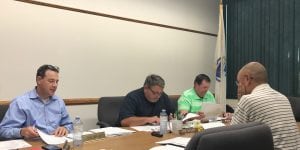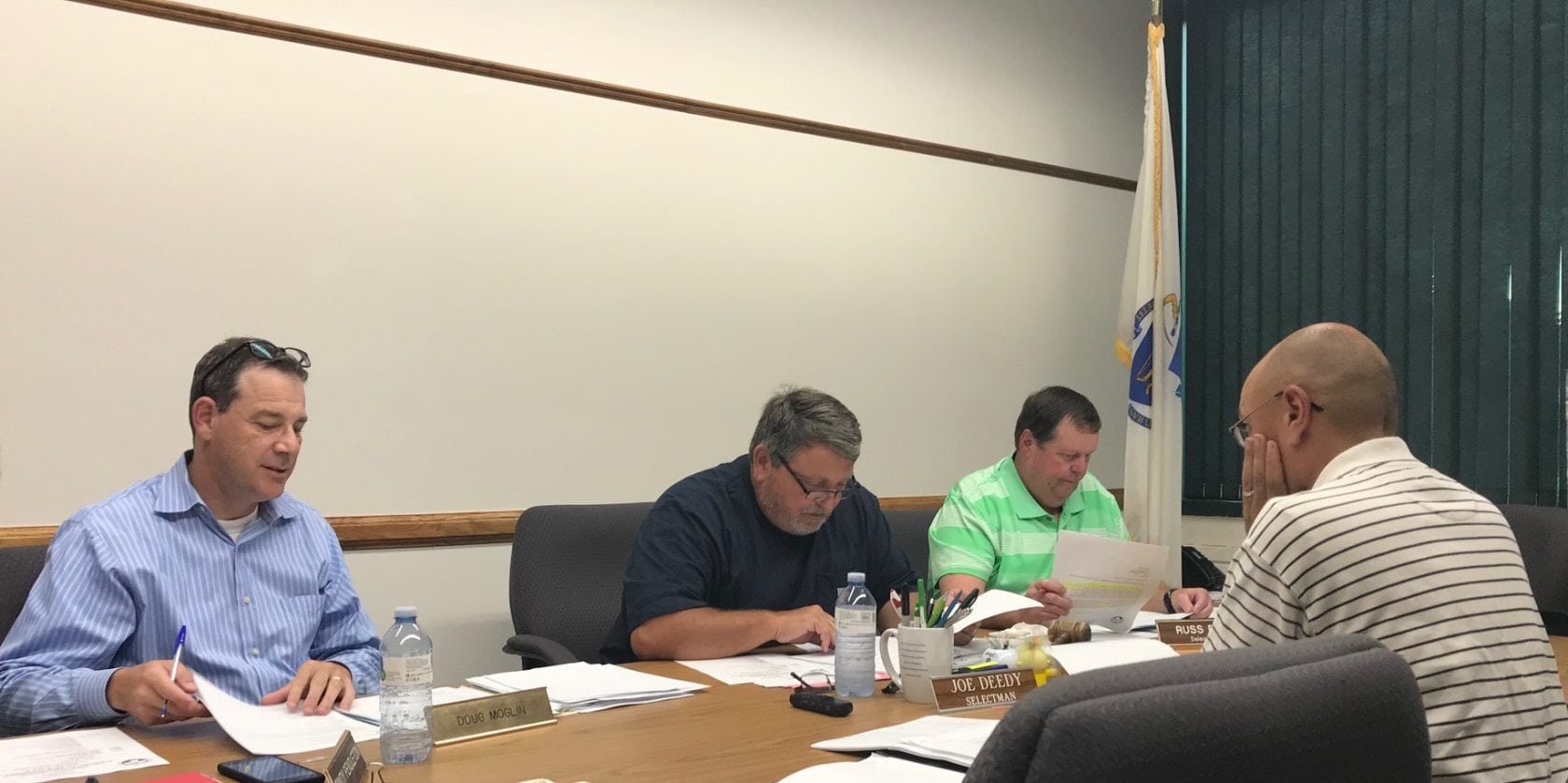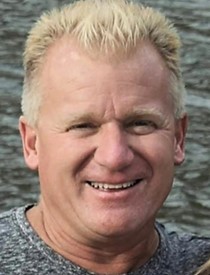SOUTHWICK – DPW Director Randy Brown reviewed the notice of intent for the town’s storm water plan with the Select Board this week.
The storm water plan is a part of the NPDES (National Pollutant Discharge Elimination System) storm water permit that is mandated through the federal government, but administered by Massachusetts DEP (Department of Environmental Protection) and EPA (Environmental Protection Agency). The permit gives communities the requirements to follow and complete with their storm water plan.
Although the town has had a storm water permit since 2003, a new permit was put into effect on July 1. The current permit has more extensive and demanding requirements.

DPW Director Randy Brown discussed the tasks on the storm water plan with the Select Board this week. (Photo by Greg Fitzpatrick)
The purpose of reviewing the notice of intent was to go over the list of tasks that the permit requires the communities to complete within certain deadlines. At the beginning of the discussion with the Select Board, Brown informed the board that in order to complete a lot of these tasks, he needs their monetary support.
“We need more resources to implement these tasks,” said Brown.
Those resources include hiring staff, having money appropriated, and setting up storm water utilities.
In May, the Select Board told Brown that they’ve agreed to fund $25,000 to help the DPW hire a part-time position for this past summer. The individual in the part-time position solely focused on updating the storm water mapping. During that same time, Brown requested $120,000 to the Select Board to help fund the first year of the program, but the board declined that request. Brown has projected that the program could cost around $1 million over five years.
While Brown noted that all of these tasks are important, some of them will have more focus.
“There’s some that will be more cumbersome than others,” said Brown.
One of the tasks is to update the storm water mapping, which can take several years to do. It involves locating storm water structures in Southwick using GPS (Global Positioning) coordinates, taking samples of weather flows, and testing for any potential contaminants. Other tasks are educational outreach and conducting comprehensive field work.
Brown pointed out that with this process being the first year of the permit, there might be a number of tasks that could be at risk of not being completed. Brown’s plan is to request for more financial support during the next budget process that will start in January.








